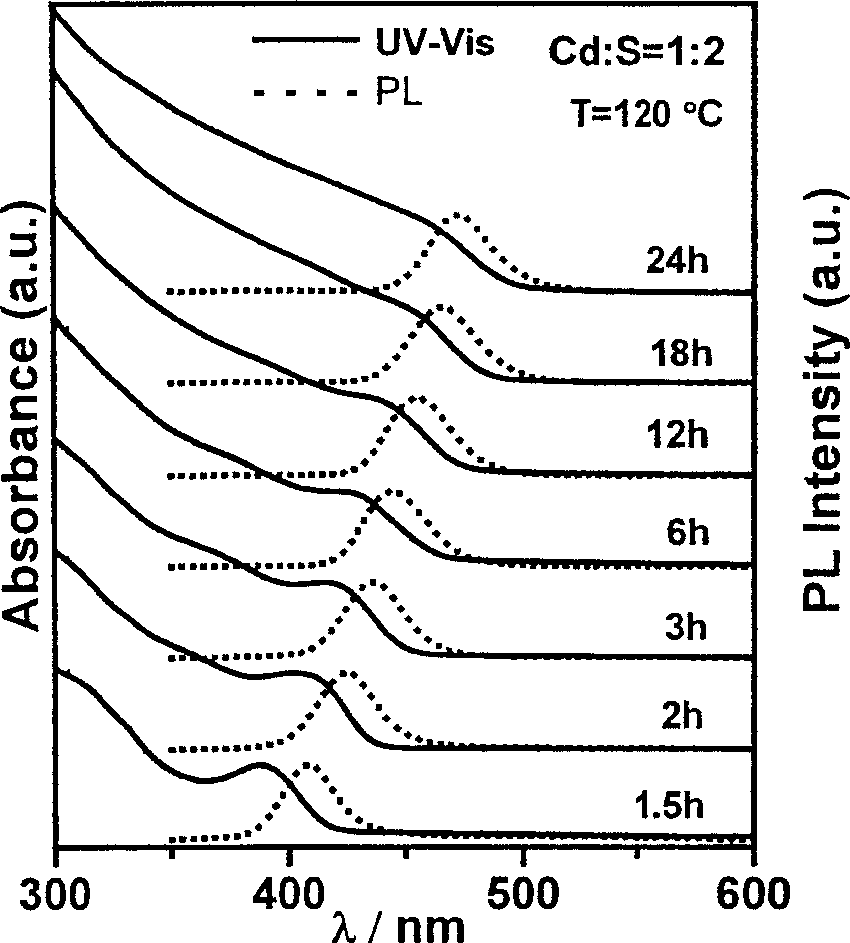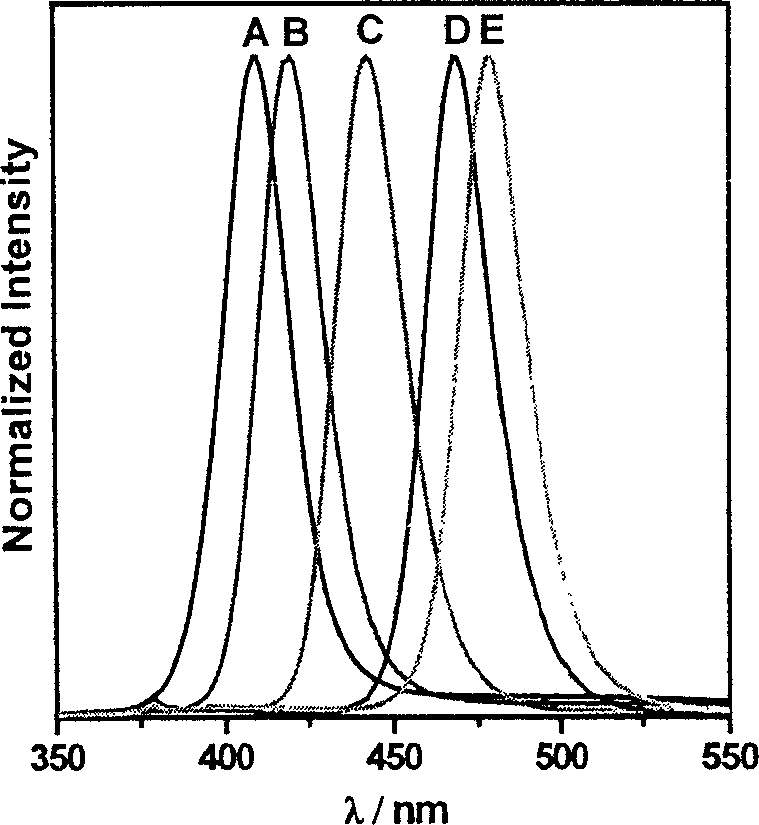Cadmium sulfide quantum point synthetized by 2-phase heating process
A technology for quantum dots and cadmium sulfide, applied in the field of two-phase thermal synthesis of cadmium sulfide quantum dots
- Summary
- Abstract
- Description
- Claims
- Application Information
AI Technical Summary
Problems solved by technology
Method used
Image
Examples
Embodiment 1
[0011] Heat the mixture of 1mmol (0.2345g) cadmium acetate, 10mmol (3.8665g) TOPO and 15ml benzene at a temperature of 80-100°C until it is colorless and transparent, and after cooling to below 40°C, mix the organic solution with 15ml containing Add 0.1mmol (0.0076g) aqueous solution of thiourea to a 50ml autoclave lined with polytetrafluoroethylene, seal the autoclave and put it into the furnace to heat at 180°C for 1.5 hours. After cooling, there will be yellow vulcanization in the oil phase. Cadmium quantum dot generation. The fluorescence peak position of its benzene solution at room temperature is around 418nm, the half peak width is 23nm, and the fluorescence quantum efficiency is 36%.
Embodiment 2
[0013] Heat a mixture of 0.2mmol (0.1134g) cadmium tetradecyl carboxylate, 3.2mmol (0.891g) oleic acid and 10ml toluene at a temperature of 80-100°C until it is colorless and transparent, and after cooling to below 40°C, Add this organic solution and 10ml of aqueous solution containing 0.4mmol (0.0304g) thiourea to a 30ml autoclave with a Teflon lining, seal the autoclave and put it into the furnace to heat at 180°C for 1 hour, and after cooling In the oil phase, yellow cadmium sulfide quantum dots are generated. The fluorescence peak position of its toluene solution at room temperature is around 413nm, the half peak width is only 18nm, and the fluorescence quantum efficiency is 60%.
Embodiment 3
[0015] Heat the mixture of 0.4mmol (0.0514g) cadmium oxide, 10mmol (2.8247g) oleic acid and 40ml n-hexane at a temperature of 80-100°C until it is colorless and transparent, and after cooling to below 40°C, the organic solution Add 40ml of aqueous solution containing 4mmol (0.3000g) thioacetamide together into a 100ml autoclave lined with polytetrafluoroethylene, seal the autoclave and put it in the furnace to heat at 150°C for 0.5 hours. Yellow cadmium sulfide quantum dots are generated. The fluorescence peak position of its n-hexane solution at room temperature is around 407nm, the half-maximum width is 28nm, and the fluorescence quantum efficiency is 45%.
PUM
 Login to View More
Login to View More Abstract
Description
Claims
Application Information
 Login to View More
Login to View More - R&D
- Intellectual Property
- Life Sciences
- Materials
- Tech Scout
- Unparalleled Data Quality
- Higher Quality Content
- 60% Fewer Hallucinations
Browse by: Latest US Patents, China's latest patents, Technical Efficacy Thesaurus, Application Domain, Technology Topic, Popular Technical Reports.
© 2025 PatSnap. All rights reserved.Legal|Privacy policy|Modern Slavery Act Transparency Statement|Sitemap|About US| Contact US: help@patsnap.com


